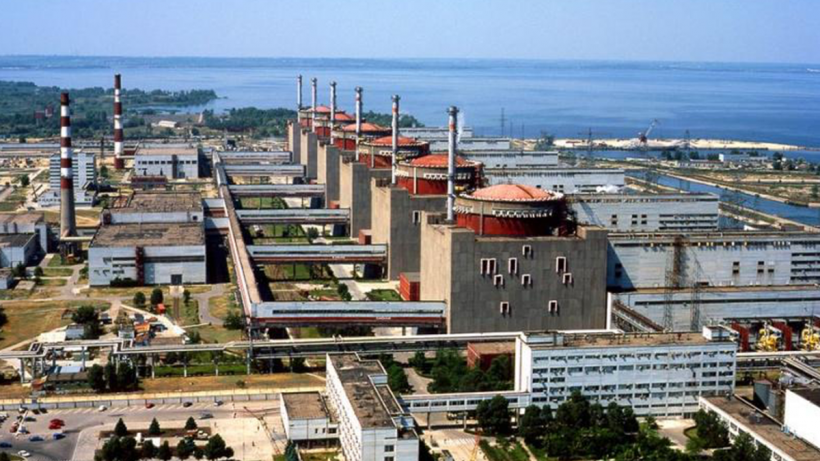The environmental NGO Greenpeace accused Russia of threatening Ukraine and the West with "an unprecedented escalation” in case Russia will restart reactors at the occupied Zaporizhzhia nuclear power station.
The Russian occupying forces captured vast of the Zaporizhzhia nuclear power plant in the early stages of the war in March 2022. Russia put all six of its reactors into various states of the shutdown. But recently, Yuriy Chernichuk, the Russian-appointed director of the site, said about a new attempt to restart nuclear energy generation later this year.
The warning from Greenpeace came a day after Rafael Grossi, the head of the International Atomic Energy Agency (IAEA), met with Russian President Vladimir Putin in Sochi to discuss nuclear safety and the situation at the plant, which is located on the frontline of the Ukraine war.
Grossi told Russia Today earlier on 5 March that he discussed with Putin the possibility of restarting the plant, a prospect that Greenpeace claims would create an unprecedented risk if any of the six reactors were restarted, as has been suggested by Russian officials.
Shaun Burnie, a nuclear specialist with Greenpeace Germany, said, "No nuclear regulations exist anywhere in the world that permit a nuclear plant to operate on the frontline in an active war zone.”
Since 11 September 2022, the power units at Zaporizhzhia NPP have not been generating electricity. However, the plant still requires external power for critical cooling systems of the reactor core and nuclear fuel in the spent fuel pools to function.
The first blackout hit on 25 August 2022 when Russian shelling damaged the last remaining high-voltage power line connecting the plant to Ukraine’s grid. Despite Energoatom’s warnings, the Russian military continued striking power lines.
An IAEA delegation visited the plant on 3 September 2022, documenting damage and threats from shelling and occupying troops.
Despite Russia’s claimed annexation of Zaporizhzhia oblast in late September 2022, the actual control over the plant’s operations remained unclear, while Russian forces detained several Ukrainian plant employees.
On 5 February 2023, President Zelenskyy imposed 50-year sanctions on Russia’s nuclear sector, targeting entities managing Zaporizhzhia NPP. Sanctions included terminating trade agreements, blocking assets, banning trade operations, revoking licenses, and prohibiting technology transfer.
The IAEA reported in January 2024 the presence of mines along the plant’s perimeter, violating safety standards. Mines found earlier were removed in November 2023.
Read also:
- Energoatom: Russia-seized Zaporizhzhia nuclear plant survives eight full blackouts since invasion started
- IAEA: Zaporizhzhia nuclear plant facing 50% staff shortage, expiring fuel
- Russian troops plant mines along Zaporizhzhia NPP perimeter, IAEA reveals

